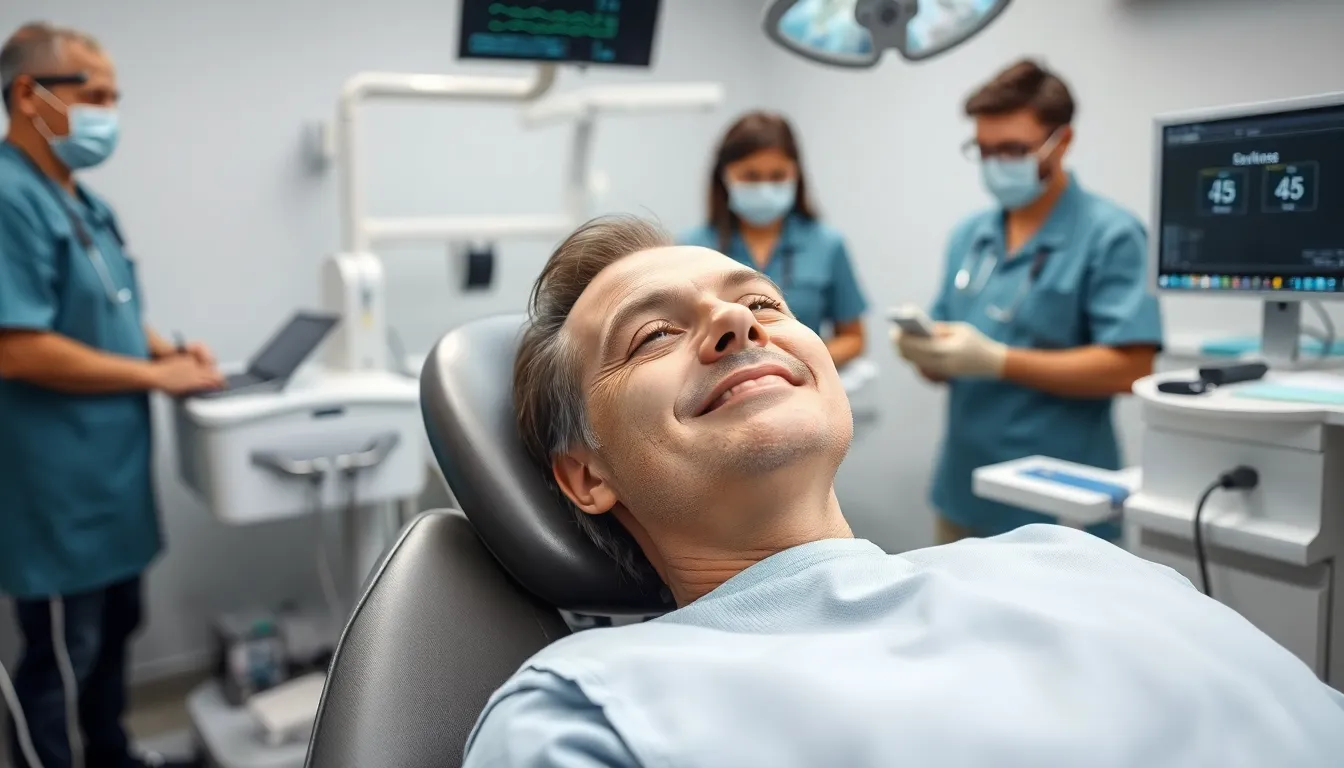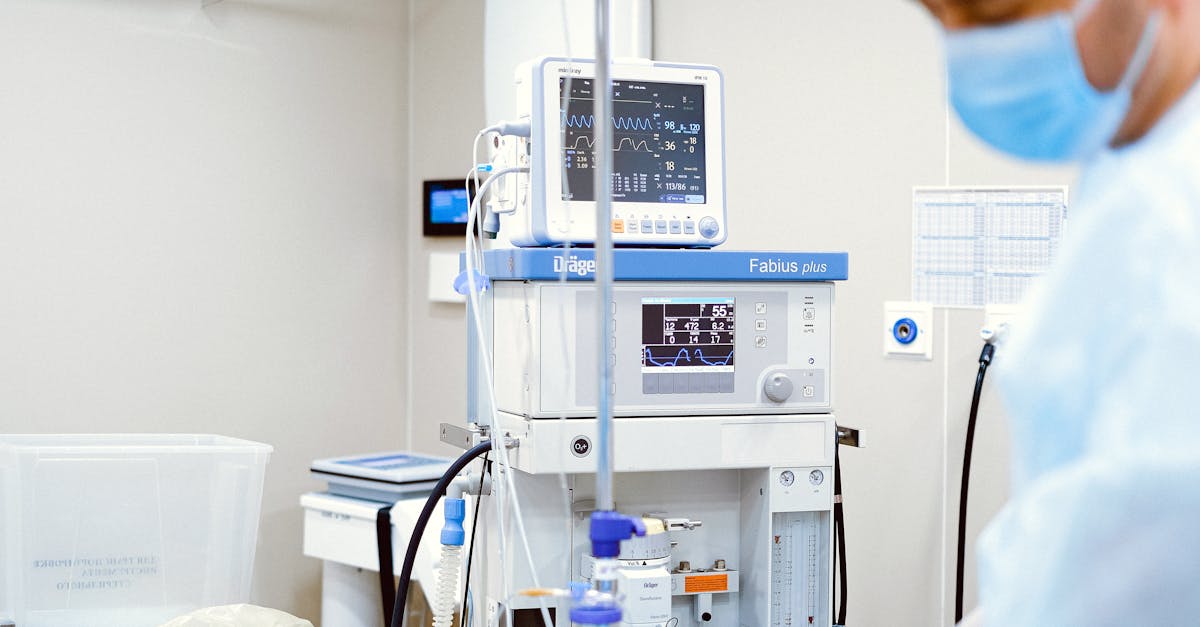Many people feel anxious at the thought of medical or dental procedures. Intravenous sedation offers a way to help patients relax and feel comfortable during treatment. This technique uses medication delivered directly into the bloodstream for fast and effective results.
With intravenous sedation patients remain conscious but deeply relaxed. It’s commonly used for procedures that might otherwise cause stress or discomfort making the experience far smoother and more manageable.
Understanding What Is Intravenous Sedation
Intravenous sedation uses a controlled dose of sedative medication, delivered directly into the bloodstream, to induce deep relaxation. Patients remain conscious and responsive, but often experience reduced awareness of the procedure and limited memory afterwards. Dental professionals in Brisbane commonly use this technique for sleep dentistry, especially for patients who report anxiety or a strong fear response.
Sleep Dentistry Brisbane clinics provide intravenous sedation for invasive dental treatments such as wisdom teeth removal, implant placement, and extended restorative procedures. Medical professionals monitor oxygen levels, heart rate, and blood pressure throughout the process to maintain safety. Recovery after intravenous sedation typically occurs within 30 to 60 minutes, with patients needing a responsible adult to escort them home.
Intravenous sedation allows people with severe dental anxiety to access regular dental care. Clinics across Brisbane’s South frequently recommend it for adults and children who struggle to tolerate dental settings. This sleep dentistry method offers predictable relaxation, helping reduce delays or complications caused by anxiety during treatment sessions.
How Intravenous Sedation Works
Intravenous sedation achieves deep relaxation by delivering a controlled dose of medication into the bloodstream. In Sleep Dentistry Brisbane clinics, this process ensures patient comfort during dental treatments that may cause anxiety or pain.
The Role of Medication in IV Sedation
Intravenous sedation uses sedative agents such as midazolam or propofol. These medications are given through a vein, allowing rapid onset and accurate dose control. Patients remain conscious but experience reduced awareness and often have little memory of the procedure—an effect known as anterograde amnesia (Australian Dental Association, 2023). Medication selection, dosing and duration depend on the patient’s health, procedure type and level of dental anxiety. Dental professionals in Brisbane often select agents with predictable recovery profiles, limiting side effects and promoting safe patient discharge.
Typical Procedure and Monitoring
Dental teams in Brisbane administer intravenous sedation in controlled clinical settings. First, a thin needle or cannula is placed in the patient’s arm or hand. The dentist adjusts the medication level in real time to maintain optimal sedation. Trained staff monitor vital signs throughout—recording heart rate, blood pressure, oxygen levels and breathing. In case of unexpected reactions or deepening sedation, protocols ensure immediate intervention. Observation continues until the patient is alert and stable, with most regaining full awareness in under one hour. An escort remains necessary for the patient after the procedure, as outlined in Sleep Dentistry Brisbane guidelines.
Benefits of Intravenous Sedation

Intravenous sedation provides predictable relaxation, essential for patients with dental anxiety undergoing treatments in Brisbane clinics. It uses medications such as midazolam for rapid calming effects, keeping patients conscious yet deeply relaxed, and reducing awareness of the procedure. Most patients experience anterograde amnesia, so they recall little or nothing about the appointment, even during lengthy placements like dental implants or wisdom teeth extraction
Controlled medication delivery allows dental professionals in Sleep Dentistry Brisbane to tailor the sedation depth in real time, increasing safety and maintaining responsiveness. Continuous monitoring of heart rate, blood pressure, and oxygen saturations reduces risk and enables quick intervention if complications arise.
Intravenous sedation shortens perceived treatment time for patients who find dental visits stressful, minimising psychological and physical discomfort. Patients with a strong gag reflex, low pain tolerance, or difficulty sitting still benefit directly, making complex treatments accessible when standard local anaesthetic fails to provide comfort.
Recovery takes 30 to 60 minutes following most procedures at Brisbane dental clinics, enabling same-day discharge with an escort. This sedation method helps individuals regain confidence in attending regular dental care, reducing chronic anxiety and improving long-term oral health outcomes in Brisbane and other urban settings offering sleep dentistry.
Possible Risks and Side Effects
Adverse effects from intravenous sedation in sleep dentistry include drowsiness, dry mouth, and mild headache. Patients in Brisbane clinics may experience temporary memory loss (anterograde amnesia) of the procedure. Nausea and bruising at the injection site can occur, especially with longer procedures.
Serious risks are rare but need monitoring. Breathing difficulties, allergic reactions, or changes in blood pressure may arise if sedation levels are not properly controlled. Clinics in Brisbane with experienced dental teams use continuous monitoring of oxygen, heart rate, and blood pressure to address potential complications immediately.
Intravenous sedation can interact with existing health conditions or medications. Those with sleep apnoea, chronic respiratory or heart issues require tailored sedation plans after thorough health assessment.
Recovery in Brisbane sleep dentistry settings generally resolves within one hour, but patients cannot drive or operate machinery until all sedation effects fully subside. A responsible adult must accompany each patient home due to residual drowsiness or impaired coordination. Clinics advise against making important decisions for 24 hours after sedation.
Dental professionals in Brisbane always provide pre- and post-procedure instructions to manage risks and support safe recovery after intravenous sedation sessions.
Who Is Intravenous Sedation Suitable For?
Intravenous sedation suits patients with moderate to severe dental anxiety, especially those who can’t tolerate routine care under local anaesthetic. People who have experienced extreme worry, fear, or panic in dental settings—such as those with dental phobia or previous traumatic dental experiences—often benefit most. Individuals with a strong gag reflex, low pain threshold, or difficulty remaining still during longer or complex dental procedures use intravenous sedation to improve comfort and cooperation.
Patients requiring multiple treatments in a single appointment often choose intravenous sedation, as it allows for extended procedures with reduced awareness and memory. Children and adults with special needs, such as autism or cognitive impairments, may access regular care more reliably through sleep dentistry services in Brisbane.
Clinicians in Sleep Dentistry Brisbane assess a patient’s full medical history before recommending intravenous sedation. People with controlled cardiovascular disease, hypertension, or diabetes commonly receive tailored care to ensure safety. However, patients with chronic respiratory conditions, untreated sleep apnoea, or allergies to sedative agents receive alternative management.
Sleep Dentistry Brisbane limits intravenous sedation use to healthy patients or those with stable medical conditions, following guidelines from the Australian and New Zealand College of Anaesthetists.
Conclusion
Intravenous sedation has transformed the experience of medical and dental procedures for anxious patients across Brisbane and beyond. By offering a calm and controlled environment it enables individuals to receive essential care without unnecessary stress or discomfort.
With modern clinics prioritising patient safety and comfort intravenous sedation remains a reliable option for those who struggle with dental anxiety or complex treatments. Anyone considering this approach should consult with an experienced professional to determine if it’s the right fit for their needs.
Frequently Asked Questions
What is intravenous sedation?
Intravenous sedation is a technique where sedative medication is administered directly into the bloodstream. It helps patients remain conscious but deeply relaxed during medical or dental procedures, especially if they experience anxiety or discomfort.
Who is intravenous sedation suitable for?
It is ideal for patients with moderate to severe dental anxiety, a strong gag reflex, low pain tolerance, difficulty sitting still, or those who need complex or multiple procedures in one visit. It is also helpful for patients with special needs.
How does intravenous sedation work?
A dentist inserts a small needle or cannula into the patient’s hand or arm to deliver sedative medication. The dose is adjusted for optimal relaxation, and patients remain conscious but usually have little memory of the procedure.
Is intravenous sedation safe?
Yes, when administered by trained dental professionals, intravenous sedation is very safe. Vital signs are continuously monitored throughout the procedure, and emergency protocols are in place to address unexpected reactions.
How quickly will I recover from intravenous sedation?
Most patients regain full awareness within 30 to 60 minutes after the procedure. However, you should not drive or make important decisions for 24 hours and must arrange for a responsible adult to escort you home.
Are there any side effects or risks with intravenous sedation?
Some common side effects include drowsiness, dry mouth, mild headache, and temporary memory loss. Serious risks, such as breathing issues or allergic reactions, are rare and managed with strict monitoring during the procedure.
Does intravenous sedation mean I will be asleep?
No, intravenous sedation places you in a deeply relaxed state but you remain conscious and responsive. Most patients have little to no memory of the treatment afterwards, a phenomenon known as anterograde amnesia.
How is the right dose of sedation determined?
The dentist will assess your health, the procedure type, and your anxiety level to tailor the medication and dosage. Adjustments are made in real time during your appointment for maximum safety and comfort.
Can I eat or drink before intravenous sedation?
Usually, you will be advised to avoid eating or drinking for several hours before your appointment. Your dental team will provide specific pre-procedure instructions to follow to ensure your safety.
Is intravenous sedation available in Brisbane?
Yes, many dental clinics in Brisbane, especially those specialising in sleep dentistry, offer intravenous sedation for patients with dental anxiety or those undergoing complex procedures. Find Sleep Dentistry Brisbane or check their Upper Mount Gravatt Clinic Information for availability
